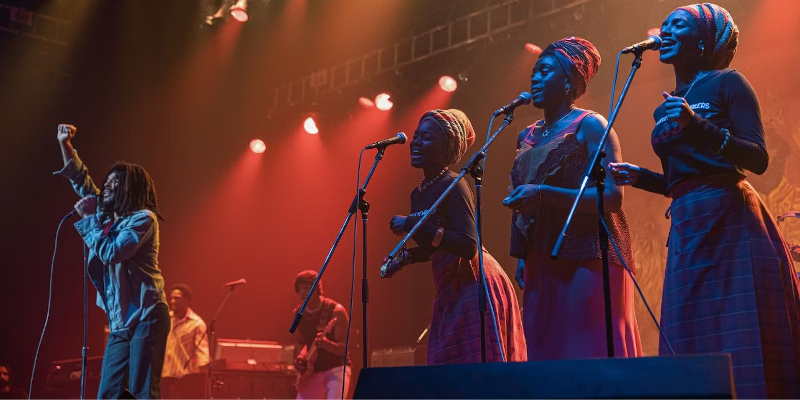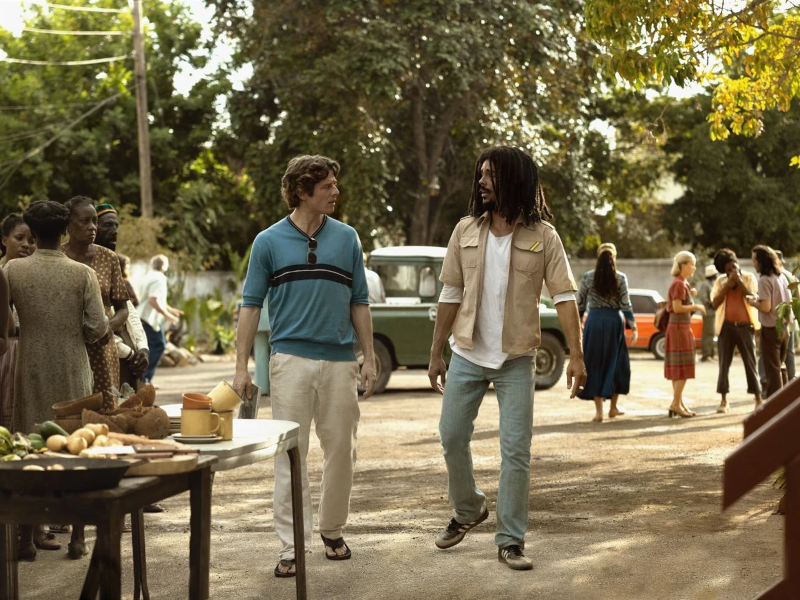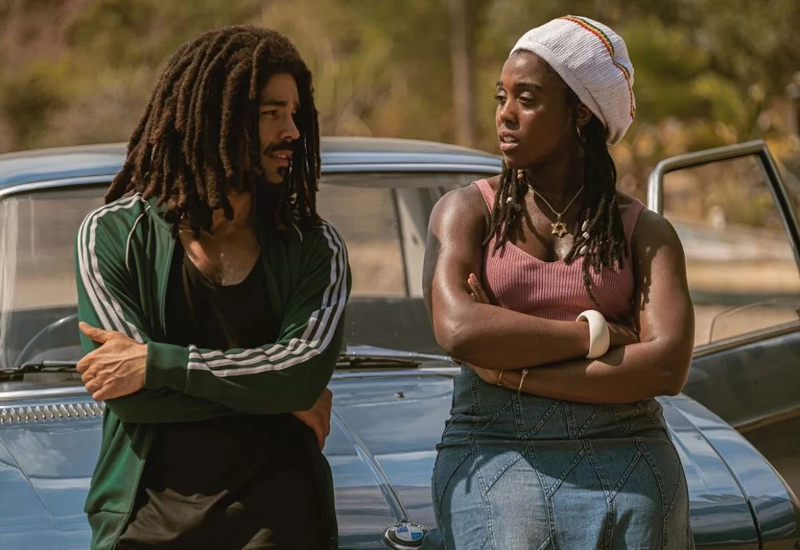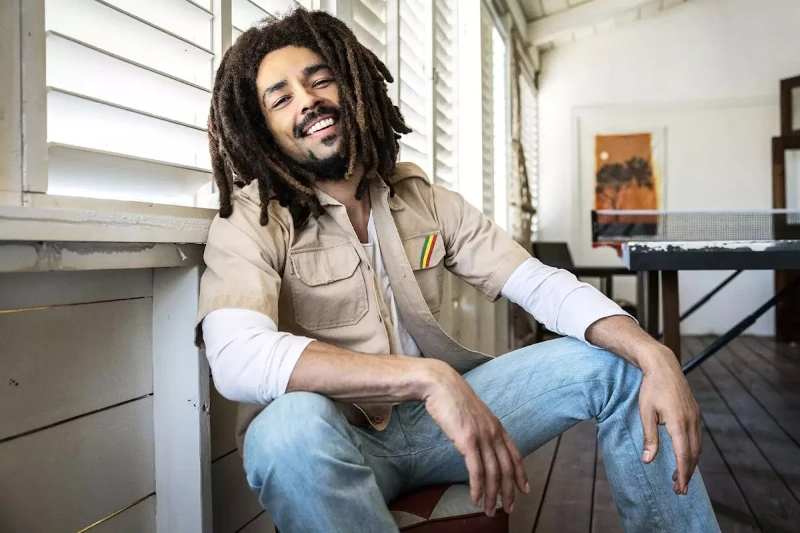Director – Reinaldo Marcus Green – 2023 – US – Cert. 12a – 104m
***1/2
From his childhood in poverty in Jamaica, Bob Marley rises to stardom and international fame as the bast known proponent of reggae music – out in UK cinemas on Friday, February 16th
All this movie has to do to succeed is give us lots of Bob Marley’s recordings and show us lots of images of him doing things in the process. That’s what the movie says on the tin and that’s what you find inside. It fundamentally delivers what its audience expects and will probably do very well. Although I wouldn’t describe myself as a particular fan, over the years Marley’s music has seeped inescapably into both the popular and my own consciousness: it’s good, positive stuff which genuinely hits a tangible musical groove. I watched the movie and had the good time I was expecting. And Kingsley Ben-Adir is watchable enough as Marley.

However.
Anyone who comes to this wanting to know more about Bob Marley will find this a frustrating experience. Director Green, who co-wrote the script, fails to introduce a number of characters properly. Among Marley’s entourage of musicians and friends, for instance, I couldn’t tell you which one in the film is Peter Tosh (Alex-A Game), who is something of a lesser legend in the world of reggae. I could tell you which one Junior Murvin (David Kerr) is, because the script makes a big point of introducing him in one scene.

And I know that Marley was signed to Island Records by head man Chris Blackwell, but all I learn from the film is that he had a white mate named Chris (a likeable James Norton) who liked his music and gave him a recording contract and European, African and US tours. (Admittedly, one scene has a framed Marley record on a wall bearing the orange silhouette Island Records label, but if you don’t know your record labels, you’ll be lost; if Island Records was actually mentioned verbally somewhere, I missed it.)
All of which is a pity, because it starts off very promisingly indeed, with a drive-by shooting when Marley is playing football with friends in Jamaica and his sons are watching. But you don’t really get to know either of his sons, only his wife Rita (a performance of great gravitas by Lashana Lynch from Bond movie No Time To Die) – and even she comes and goes in the script, leaving for America at one point only to reappear later.

As for the shooting, there’s another sequence in which Marley’s Jamaican home (or perhaps it’s his studio, like so much else here it’s not clear) is infiltrated by two gunmen who attempt to kill him. The film as a whole is bookended by two concerts, one in 1976 intended to bring together two warlords who are fighting it out in Jamaica and one in 1978 when he returns to Jamaica and to play a gig where he successfully brings the pair of them together on stage.
One of the best scenes has the young, teenage Rita (Nia Ashi) explaining to teenage Bob (Quan-Dajai Henriques) various personal pronouns in Rastafarianism which decries the use of ‘you’, ‘we’, and ‘they’ as a form of othering, preferring to use more inclusive phrases like ‘I and I’. A few, further scenes of the much younger couple are scattered throughout, and prove generally very affecting.
And yet, you can’t help but feel that the whole thing could have been far better executed and told you a lot more about Marley, who he was, and who were all those people around him.
As I said at the start, though, this does what it says on the tin, and punters will probably enjoy it. I certainly did.
Bob Marley One Love is out in cinemas in the UK on Friday, February 16th.
Trailer:
